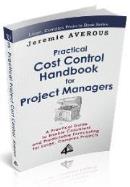One of the most common misconceptions in the field of Project Cost Control is to believe that it is just an extension of Accounting – because it deals with money. Nothing could be furthest from the reality – Project Cost Control primarily requires a deep business understanding so as to be able to produce a sound forecast of the project situation at its completion. In our new White Paper 2014-02 we examine why there is such a difference in project environments and why Project Cost Control and Accounting should be neatly separated.
Financial forecasting is quite straightforward in most industries where the future is the repetition of the past, with a few tweaks. It can be safely left with accounting and usual financial analysis techniques. In projects, activities that are performed are unique. The discipline of Project Cost Control thus evolved as a specific requirement for projects so as to ensure that the Project Manager constantly has access to up-to-date cost information (Actual Cost) and to a proper forecast of the project completion based on sound business understanding.
The best way to keep control in projects is to create, from the beginning, a clear distinction between Accounting and Cost Control at the functional level, and make sure that any carry over work from Accounting, if unavoidable, is limited in scope and time. Our White Paper goes on to describe in detail how the duties can be split between Accounting and Project Cost Control. Read our new White Paper 2014-02 “Why Accounting and Cost Control roles Should be Neatly Separated in Project Organizations”!
Find all these principles of Project Cost Control exposed in a comprehensive manner in our new Handbook,  Practical Project Cost Control for Project Managers (now published – click on the link to see it on Amazon!)
Practical Project Cost Control for Project Managers (now published – click on the link to see it on Amazon!)


